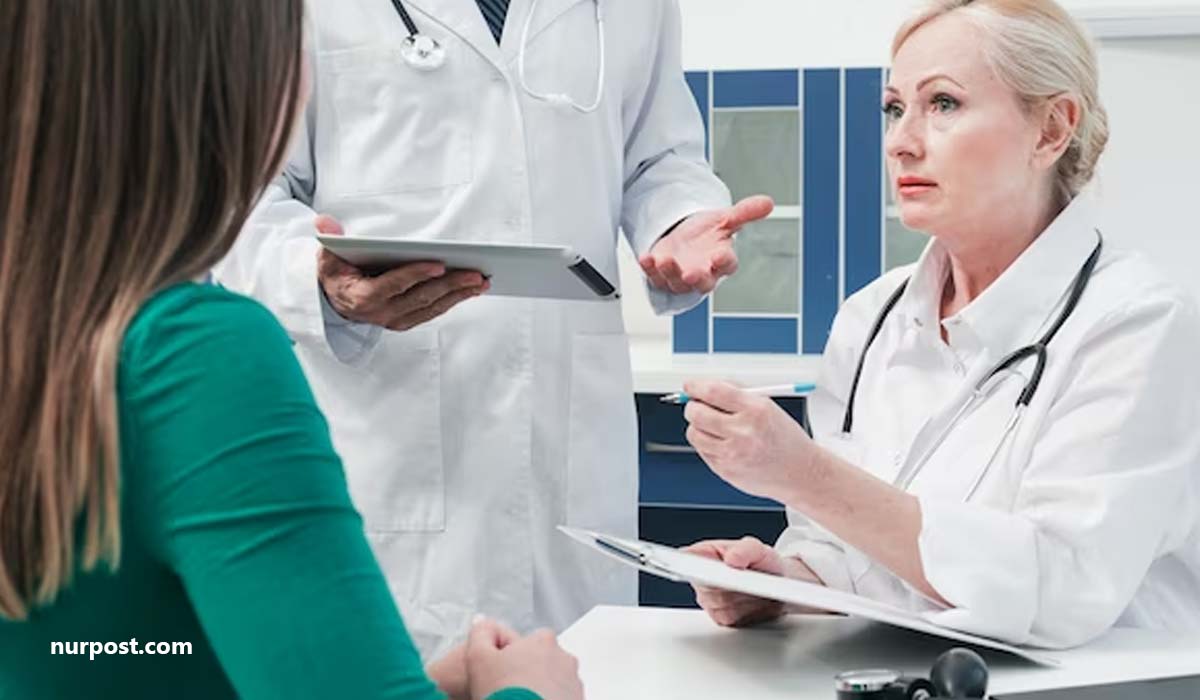STDs Causes, Symptoms, Diagnosis, and Effective Treatments where STD stands for sexually transmitted diseases. STDs are infections that are passed from one person to another through sexual contact. In some cases check below full article.
STDs Causes
The most common STDs are chlamydia, gonorrhea, syphilis, and HPV. STDs can cause serious health problems, including infertility, cancer, and death. STDs are preventable with safe sex practices and prompt treatment.
Overview of STDs
Sexually transmitted diseases (STDs) are infections that are passed from one person to another through sexual contact.
The causes of STDs are viruses, bacteria, and parasites. These pathogens are usually transmitted through sexual intercourse or contact with infected body fluids, such as blood, vaginal fluids, or semen.

STDs can cause a wide range of symptoms, some of which are mild and others that can be very serious. In some cases, STDs can lead to infertility, cancer, or even death.
There are a number of tests that can be used to diagnose STDs. The most common test is a urine test, which can be used to test for chlamydia, gonorrhea, and trichomoniasis. Blood tests can also be used to diagnose STDs, but they are not as common.
There are a number of effective treatments for STDs. In most cases, STDs can be cured with antibiotics. In some cases, such as with HIV/AIDS, there is no cure, but there are treatments that can prolong a person’s life.
What are STDs?
Sexually transmitted diseases (STDs) are infections that can be passed from one person to another through sexual contact. The causes of STDs are viruses, bacteria, and parasites.
These pathogens are usually transmitted through sexual intercourse or contact with infected body fluids, such as blood, vaginal fluids, or semen.
STDs can cause a wide range of symptoms, from mild to severe. In some cases, STDs can lead to infertility, cancer, or even death.
Diagnose STDs
There are a number of tests that can be used to diagnose STDs. The most common test is a urine test, which can be used to test for chlamydia, gonorrhea, and trichomoniasis. Blood tests can also be used to diagnose STDs, but they are not as common.
There are a number of effective treatments for STDs. In most cases, STDs can be cured with antibiotics. In some cases, such as with HIV/AIDS, there is no cure, but there are treatments that can prolong a person’s life.
Causes of STDs
STDs are caused by viruses, bacteria, and parasites. These pathogens are usually transmitted through sexual intercourse or contact with infected body fluids, such as blood, vaginal fluids, or semen.
The most common STD-causing pathogens are:
- Chlamydia
- Gonorrhea
- Herpes simplex virus (HSV)
- Human immunodeficiency virus (HIV)
- Human papillomavirus (HPV)
- Syphilis
- Trichomoniasis
STD Symptoms
STDs can cause a wide range of symptoms, from mild to severe. In some cases, STDs can lead to infertility, cancer, or even death.
The most common symptoms of STDs include:
- Abnormal vaginal discharge
- Burning sensation during urination
- Genital sores or warts
- Painful intercourse
- Swollen lymph nodes
STD Diagnosis
There are a number of tests that can be used to diagnose STDs. The most common test is a urine test, which can be used to test for chlamydia, gonorrhea, and trichomoniasis. Blood tests can also be used to diagnose STDs, but they are not as common.
Your doctor may also recommend a physical exam. During a physical exam, your doctor will look for signs of STDs, such as genital sores or warts. They may also take a swab of your vagina or penis to test for STDs.
STD Treatment
There are a number of effective treatments for STDs. In most cases, STDs can be cured with antibiotics. In some cases, such as with HIV/AIDS, there is no cure, but there are treatments that can prolong a person’s life.
The most common treatment for STDs is antibiotics. Antibiotics can cure STDs caused by bacteria, such as chlamydia, gonorrhea, and syphilis. They can also treat STDs caused by parasites, such as trichomoniasis.

There is no cure for STDs caused by viruses.
There is no one definitive answer to this question. However, some potential impacts of a comprehensive guide to STDs could include:
- empowering people to take control of their sexual health
- increasing STD testing and treatment
- improving communication between sexual partners
- reducing the stigma around STDs
HPV (Human Papillomavirus)
HPV is a group of viruses that can cause warts, cancer, and other diseases. Some types of HPV are more likely to cause cancer, while others cause warts on the hands or feet. HPV is the most common STD, and most people who get it don’t even know they have it.
There is no cure for HPV, but there are vaccines that can help prevent it. The HPV vaccine is recommended for all children at age 11 or 12. It is also recommended for adults who haven’t been vaccinated.
Chlamydia
Chlamydia is a sexually transmitted infection (STI) caused by the bacteria Chlamydia trachomatis. It is the most commonly reported STI in the United States. Chlamydia can infect both men and women. It can cause serious health problems, including infertility, if it is not treated.
Chlamydia is usually spread through sexual contact with someone who has the infection. It can also be spread from mother to child during pregnancy. Chlamydia can be treated with antibiotics.
Gonorrhea
Gonorrhea is a sexually transmitted infection (STI) caused by the bacterium Neisseria gonorrhoeae. So Gonorrhea is a very common STI, especially among young people. It can cause serious health problems, including infertility, if it is not treated.
Gonorrhea is usually spread through sexual contact with someone who has the infection. It can also be spread from mother to child during pregnancy. Gonorrhea can be treated with antibiotics.
Syphilis
Syphilis is a sexually transmitted infection (STI) caused by the bacterium Treponema pallidum. So Syphilis is a serious disease that can cause infertility, birth defects, and even death if it is not treated.
Syphilis is usually spread through sexual contact with someone who has the infection. It can also be spread from mother to child during pregnancy. Syphilis can be treated with antibiotics.
HIV/AIDS
HIV is a virus that attacks the body’s immune system. AIDS is the most advanced stage of HIV infection. HIV is spread through sexual contact with someone who has the virus. It can also be spread through sharing needles or other injection drug equipment.

There is no cure for HIV/AIDS, but there are treatments that can prolong a person’s life. The earlier HIV is diagnosed, the better. There is also a vaccine that can help prevent HIV.
What are STDs?
STDs are sexually transmitted diseases. They are passed from one person to another through sexual contact. Sexual contact includes vaginal, anal, and oral sex, as well as any other kind of sexual contact.
How are STDs spread?
STDs are usually spread by having vaginal, anal, or oral sex with someone who has the STD. STDs can also be spread by sharing needles or sexual contact with someone’s blood.
How do I know if I have an STD?
The only way to know for sure if you have an STD is to get tested. Many STDs have no symptoms, so you can have the disease and not know it. Even if you don’t have symptoms, you can still pass the disease to others.
What are the symptoms of STDs?
STDs can cause a variety of symptoms. They may cause no symptoms at all. If you do have symptoms, they may include:
- Sores or bumps on the genitals or in the anal or rectal area
- Painful or burning sensations when urinating
- Unusual discharge from the penis or vagina
- Unusual vaginal bleeding
- Painful or swollen testicles
- Persistent sore throat
- Fatigue
How are STDs treated?
STDs are treated with antibiotics or other medications. In some cases, no treatment is necessary.
How can I prevent STDs?
The best way to prevent STDs is to abstain from sexual contact or to have sex only with one partner who is also abstaining from sexual contact.
If you have sex, use a condom every time. Condoms are available for free at many health clinics.
What should I do if I think I have an STD?
If you think you have an STD, you should see a doctor or go to a health clinic as soon as possible. You can also call a hotline for more information.
How can I find more information about STDs?
You can find more information about STDs by talking to a doctor or nurse, calling a hotline, or visiting a website.
What Limitations will you find in Comprehensive Guide to STDs?
There are certainly some limitations to be aware of when using the Comprehensive Guide to STDs. First and foremost, this guide is not all-inclusive. It does not include every possible STD, nor does it provide information on every single symptom or treatment method.

Additionally, the guide is based on research that is current as of the publication date; however, medical science is constantly evolving, so new information may be discovered that is not reflected in this guide.
STDs Causes
That said, the Comprehensive Guide to STDs is a valuable resource for anyone who wants to learn more about these conditions.
The Bottom Line
It provides clear, concise information on a wide range of STDs, and is a good starting point for anyone who suspects they may have an STD or who simply wants to learn more about these conditions.
